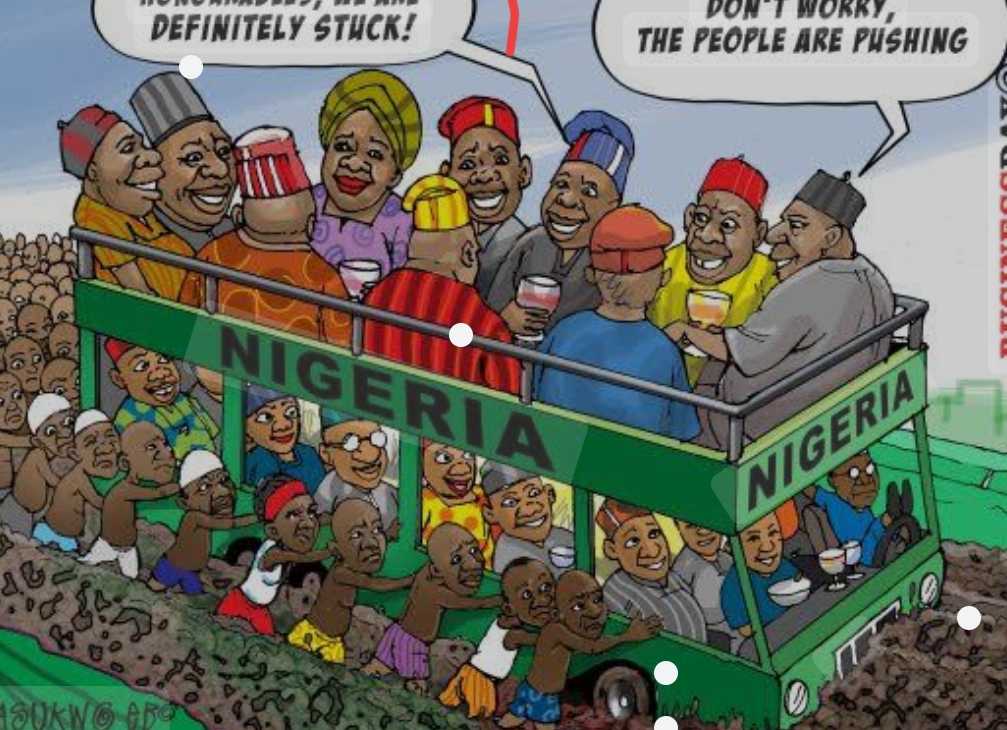
Asiwaju Bola Ahmed Tinubu, once hailed as a political maestro, has led Nigeria down a perilous path in just over a year in office. The nation is grappling with an alarming economic downturn, worsening insecurity, and a glaring infrastructure deficit, all while government officials, led by Tinubu himself, indulge in lavish spending that serves only their comfort, not the people’s needs.
The high cost of governance has become a severe burden on Nigeria’s already fragile economy. While millions of Nigerians struggle to afford basic necessities, the president and his allies are busy spending billions on private jets, luxury cars, and extravagant government functions. The irony is glaring—while the masses endure hunger and poverty, their leaders are living in opulence, far removed from the harsh realities of everyday life.
This excessive spending is not just an insult to the Nigerian people; it is a dangerous misallocation of resources. The funds being wasted on luxuries could be redirected into sectors that would actually benefit the nation, such as agriculture and the production sector. Investing in these areas would not only create jobs but also stabilize the economy, reduce poverty, and ensure food security. Yet, under Tinubu’s watch, these critical sectors have been neglected, leading to a dramatic fall in Nigeria’s nominal GDP.
When Tinubu fought for power alongside Muhammadu Buhari in 2015, Nigeria’s nominal GDP stood at $540 billion. By the time he took office in 2023, that figure had already plummeted to $380 billion, a clear indication of the economic decline that had set in. Shockingly, in just one year and three months under Tinubu’s leadership, the GDP has further nosedived to $240 billion. Nigeria, once the largest economy in Africa by nominal GDP, has now fallen to fourth place, trailing behind South Africa, Egypt, and Algeria.
The situation is even more disheartening when we consider that Tinubu, who once presented himself as a champion of the poor, has shown a blatant disregard for the plight of ordinary Nigerians. His administration’s priorities seem to lie more with securing the comfort and gains of his family, close allies, and political support system rather than addressing the pressing issues facing the country.
Tinubu’s rise to power was heavily reliant on the political manipulations in the North, which gave him an edge in the 2023 elections. However, as the country faces an ever-deepening crisis under his leadership, that political advantage may not be enough to secure his future. The very people who helped him ascend to power are now bearing the brunt of his government’s failures, and their support cannot be guaranteed in 2027.
Comparisons to Goodluck Jonathan, the president Tinubu helped oust, are becoming inevitable. Despite Jonathan’s flaws, his administration appears far more favorable when contrasted with the current situation. Nigerians rejected Jonathan, believing that Tinubu and Buhari would bring about a new era of accountability and prosperity. Instead, they have been met with disappointment as the ruling elite continues to feast on the nation’s misfortune.
As Nigeria stands on the brink of further economic collapse, it is crucial for Tinubu to reassess his priorities. The country cannot afford to continue on this road to perdition. Redirecting government expenditures from luxurious excesses to productive investments is not just a moral imperative—it is a necessity for the survival of the nation. Without significant changes, the legacy Tinubu leaves behind may well be one of economic ruin, widespread poverty, and a fractured nation.

